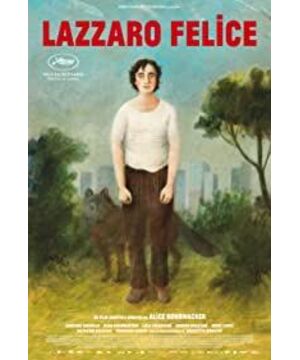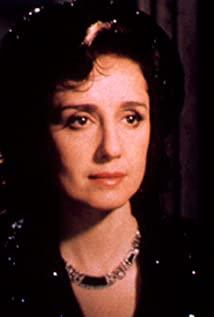The first half of the whole film is about a group of tenant farmers in an isolated place, working every day at sunrise and sunset. The life goal of most of them is to complete the production tasks given to them by the master, and all they can get is not to starve and freeze.
From our current perspective, this is the enslavement and exploitation of ordinary people by feudal landlords.
Just like the son of a noblewoman in the film asked the noblewoman: Are you not afraid? Afraid they realize how deceived they are? Noblewoman: Humans are like animals, and to give them freedom means to give them the ability to realize that they were slaves, which is why they are immersed in suffering. Now they suffer without knowing the truth. Then the noblewoman said again: Look, did you see it? I exploit them and they exploit the weaker, a food chain that can never be stopped.
When I saw this conversation, the first thing that came to my mind was "Blessing". Does it feel particularly ironic?
In the second half of the film, the son pretends to be kidnapped in order to deceive the noblewoman, but it is self-defeating to introduce the police into this isolated feudal kingdom. With the explanation and help of the police, this group of people deprived of their liberty gained their freedom. Are they better off with freedom than they were without freedom? It seems not. On the contrary, because they have no source of livelihood, they become thieves and robbers, and they cannot even fill the stomachs of themselves and their families.
Seeing this, suddenly there is a question mark in my head? Does the film want to tell about "feudal exploitation is better than democratic freedom"?
After reading it, I thought about it for a while, and finally got a negative answer.
Every one of us is born with a desire to "make ourselves better". Driven by this desire, we exchange the resources we need for the resources we have. For example: We need to work hard to produce what others need in exchange for the food we need to survive. In this process, we are completely in active choice, and no one can force us to choose what they want to impose on us. Feudal exploitation means that we have no chance to make choices other than survival, such as enjoying education and pursuing a better life.
When we suddenly have the right to choose, we get lost. Originally under the feudal system, we had only one goal: to survive; but we who have the right to choose will be confused because there are too many choices. As in this case, if you only have one book in your hand, you can only read this book; however, if you have five books in your hand, you can't be sure which one you want to read. Life is the same, we have more choices, but most of us fall into the trap of not knowing how to choose. So I think what the film wants to express is "carefully use the freedom of choice and keep in mind the desire to make your life better".
Thinking about our college days, I or someone around me would show such a state: I spend most of the day in the dormitory, either playing games or sleeping, I haven't been to a few classes in a semester, and I fail the class at the end of the semester. Even being warned and dropped out of school. But don't forget how hard and hard we worked so hard to go to college in high school, we even recited English when we were eating. Isn't that how we behave when suddenly given the power to choose? Much like the tenant farmers in the movie.
View more about Happy as Lazzaro reviews









